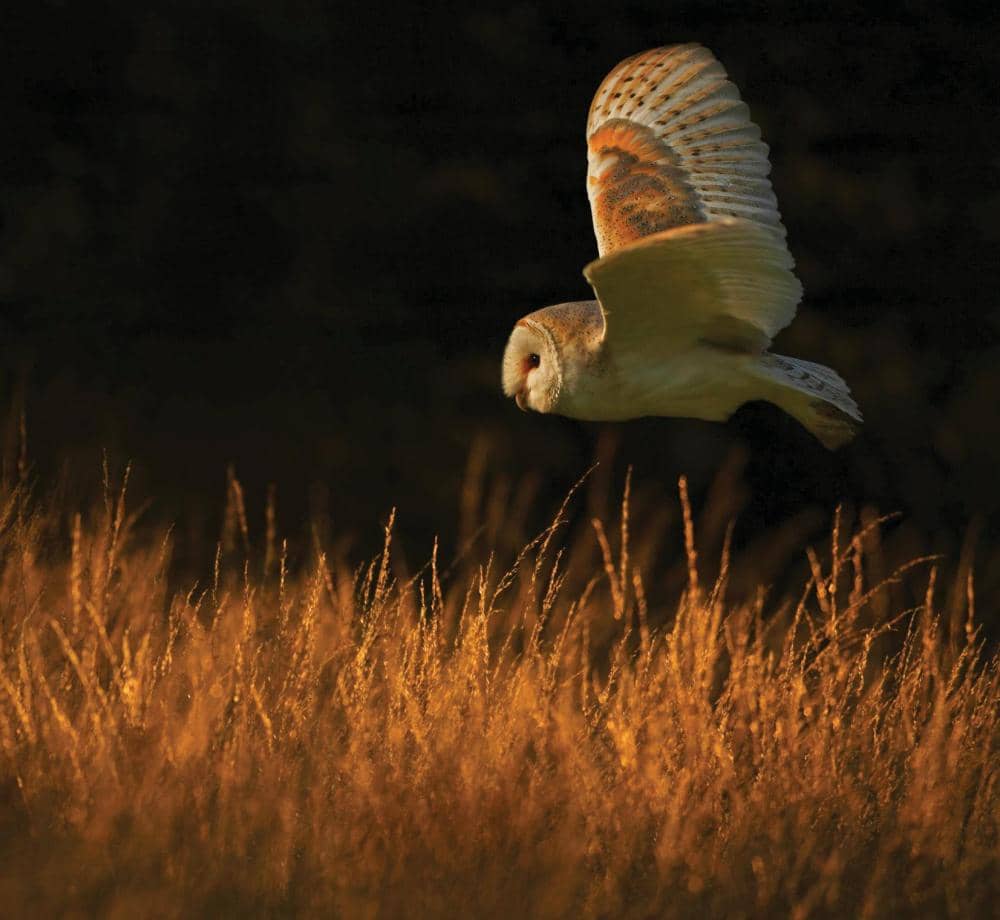
WHILE THE ROBIN HOLDS THE MANTLE of 'nation's favourite', surely our most loved owl must be the strikingly beautiful barn owl. Most often spotted when either flashing through car headlights or quartering rough grasslands at dusk, the ghostly spectacle of a hunting barn owl can perform the simple magic trick of lifting the gloomiest of spirits.
One of the world's most widespread bird species, with a presence on every continent bar Antarctica, the barn owl can also be encountered across much of lowland Britain. Following a number of difficult decades, when changes to farmland management presided over a perilous population decline, a thorough understanding of the owl's needs has seen a marked improvement in its fortunes. Recent estimates suggest a breeding population of about 9,000 pairs, so with a little bit of insider knowledge, the chance of catching up with this spectacle is quite possibly the best it's been for a generation.
Did you know? Grassy margins around fields, especially along hedges and ditches, provide important sources of small prey
Denne historien er fra June 2022-utgaven av BBC Wildlife.
Start din 7-dagers gratis prøveperiode på Magzter GOLD for å få tilgang til tusenvis av utvalgte premiumhistorier og 9000+ magasiner og aviser.
Allerede abonnent ? Logg på
Denne historien er fra June 2022-utgaven av BBC Wildlife.
Start din 7-dagers gratis prøveperiode på Magzter GOLD for å få tilgang til tusenvis av utvalgte premiumhistorier og 9000+ magasiner og aviser.
Allerede abonnent? Logg på

SNAP-CHAT
Justin Gilligan on giant spider crabs and holding hands with an octopus

STEPPE CHANGE
Herds of saiga have returned to Kazakhstan, but there's a fine balance to tread

TREES FOR LIFE
Community is at the heart of conservation in the tropical forests of southern Belize

WHEN DOVES CRY
Turtle doves are now the UK's fastest declining bird species, but the RSPB is on a mission to save them

SURVIVAL OF THE CUTEST
We can't help being drawn to cute creatures, but our aesthetic preferences both help and hinder conservation

LIGHT ON THE NORTH
Spectacular images of Arctic foxes, reindeer and musk oxen reveal the wild beauty and diversity of Scandinavia

ROLLING IN THE DEEP
The super-sized crustacean that lives in the deepest, darkest ocean

LET'S GET TOGETHER
Clay licks deep in the Amazon explode in a riot of colour, with macaws the stars of the show

FEMALE OF THE SPECIES
To sponge or not to sponge? That is the question for the bottlenose dolphins (Tursiops aduncus) living in Shark Bay, Western Australia.

7 nature encounters for the month ahead
WITH NATURALIST AND AUTHOR BEN HOARE